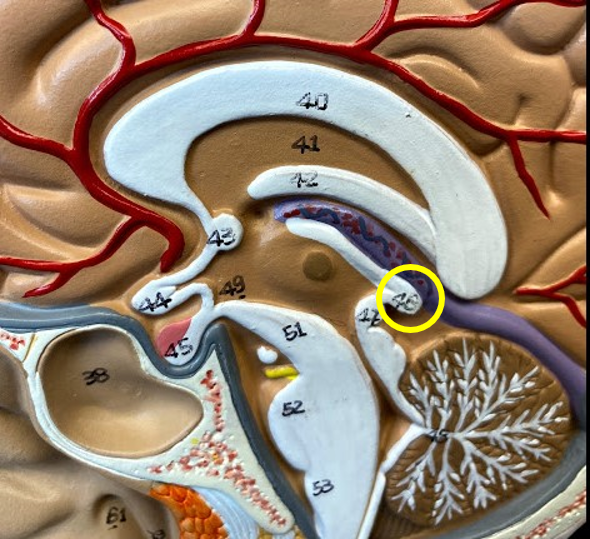
Name the gland & one hormone it produces.
- Pineal gland
- produces melatonin (increases in the dark)
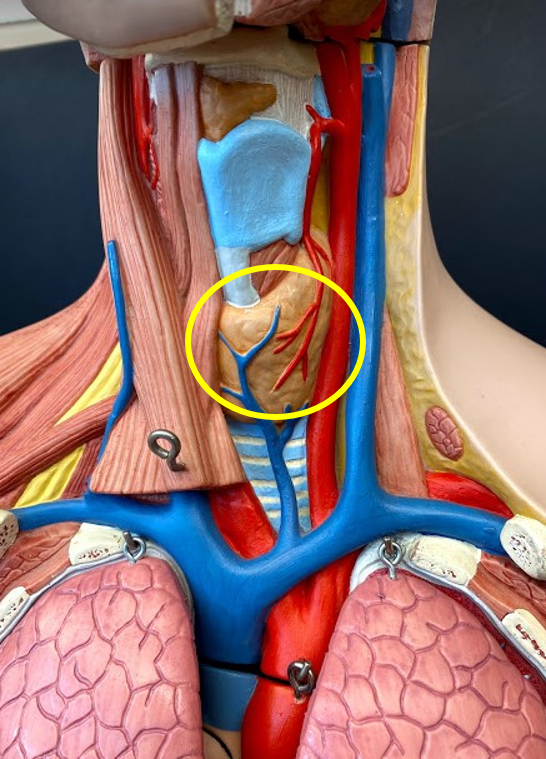
Name the gland & one hormone it produces.
- Thyroid gland
- produces Thyroid Hormone and Calcitonin (parafollicular cells/ C cells)
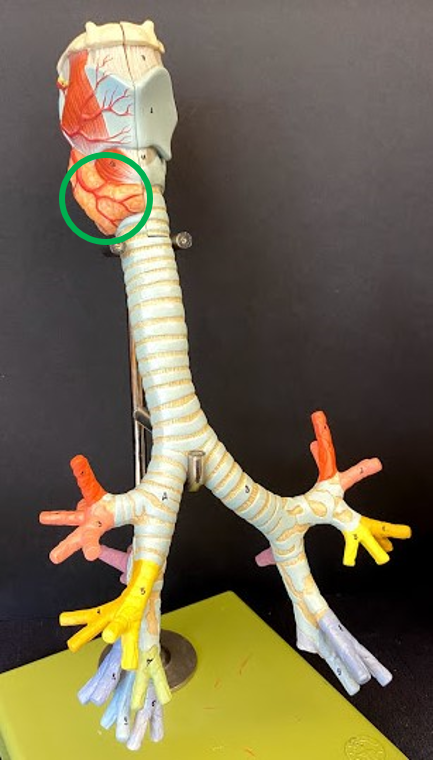
Name the gland & one hormone it produces.
- Thyroid gland
- produces Thyroid Hormone and Calcitonin (parafollicular cells/ C cells)
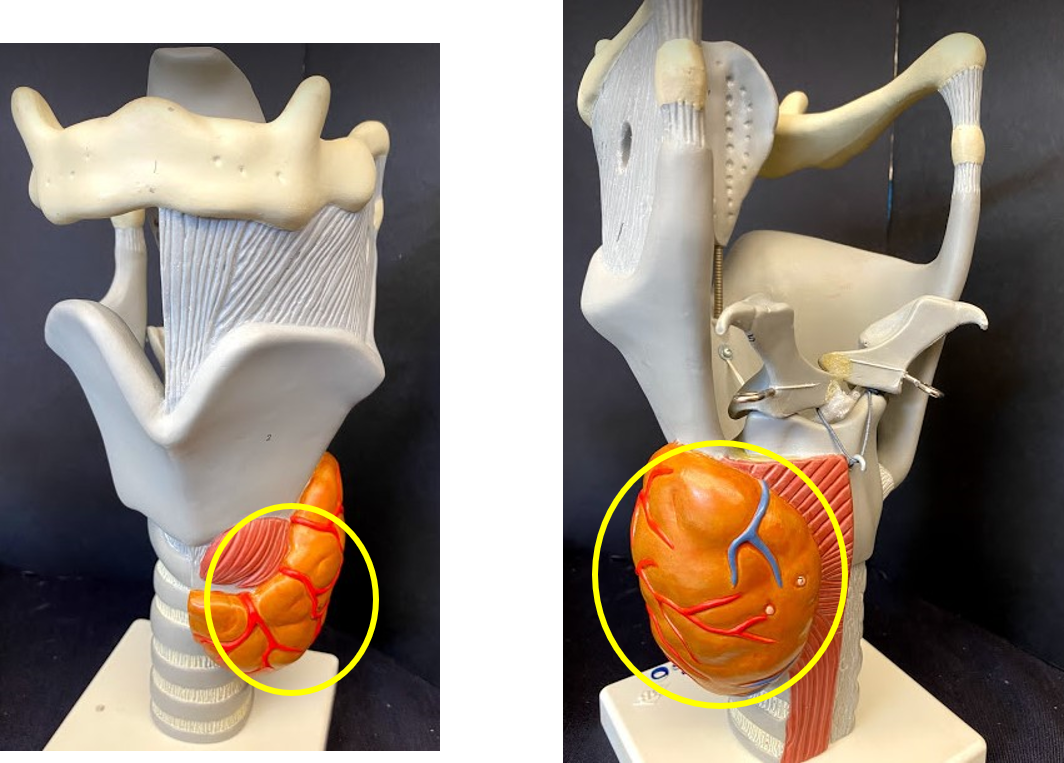
Name the gland & one hormone it produces.
- Thyroid gland
- produces Thyroid Hormone and Calcitonin (parafollicular cells/ C cells)
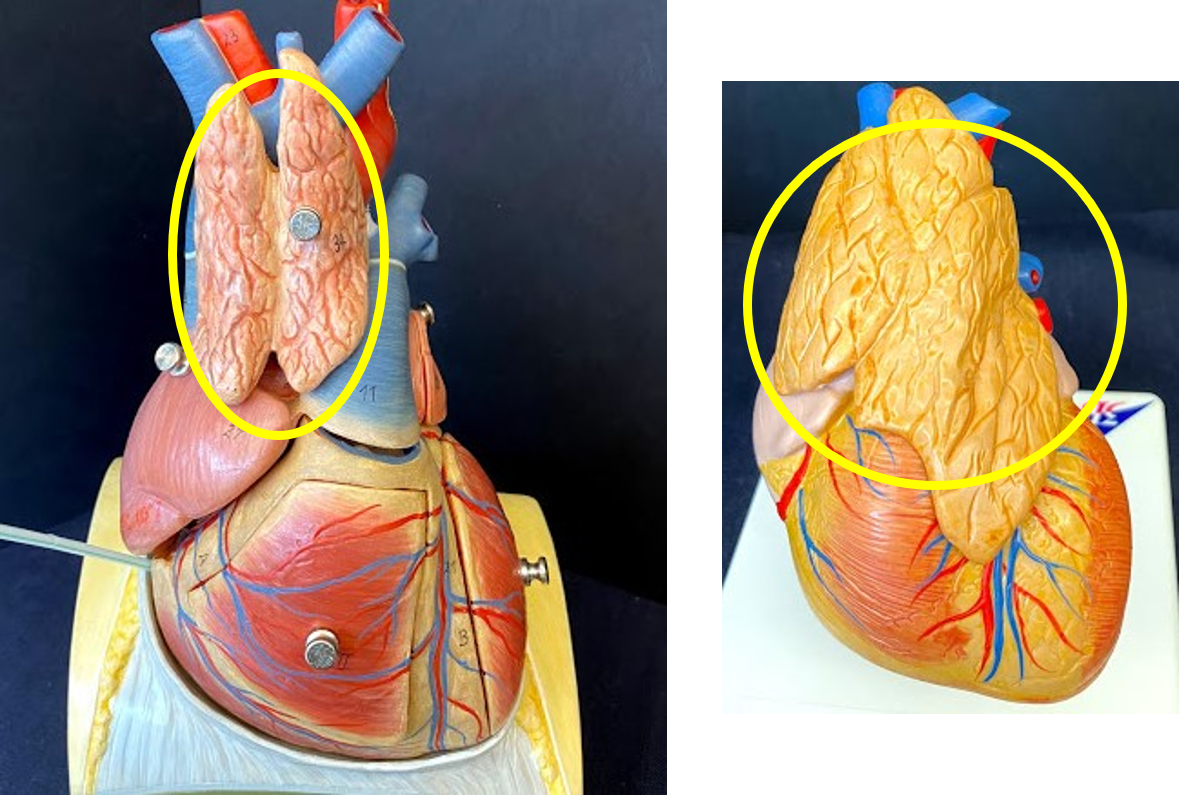
Name the gland & one hormone it produces.
- Thymus
- produces Thymosin.
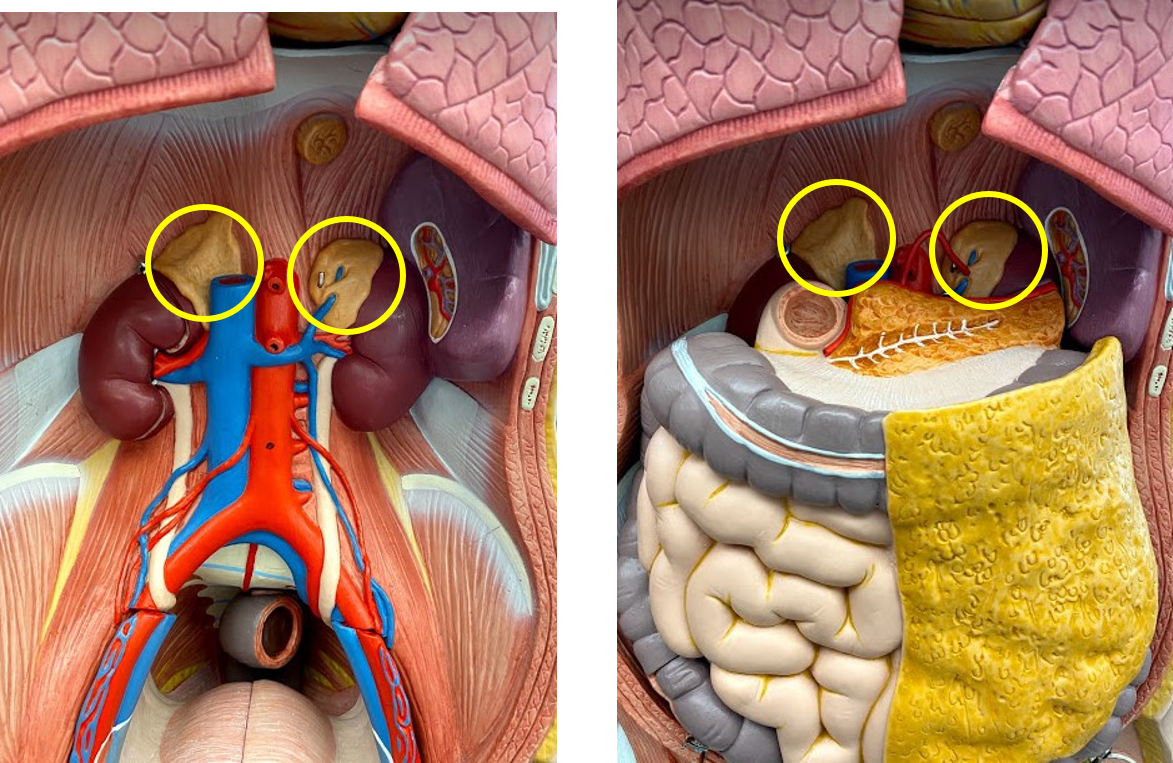
Name the gland & one hormone it produces.
- Adrenal glands
- produces Aldosterone, Cortisol, Epinephrine, & Norepinephrine.
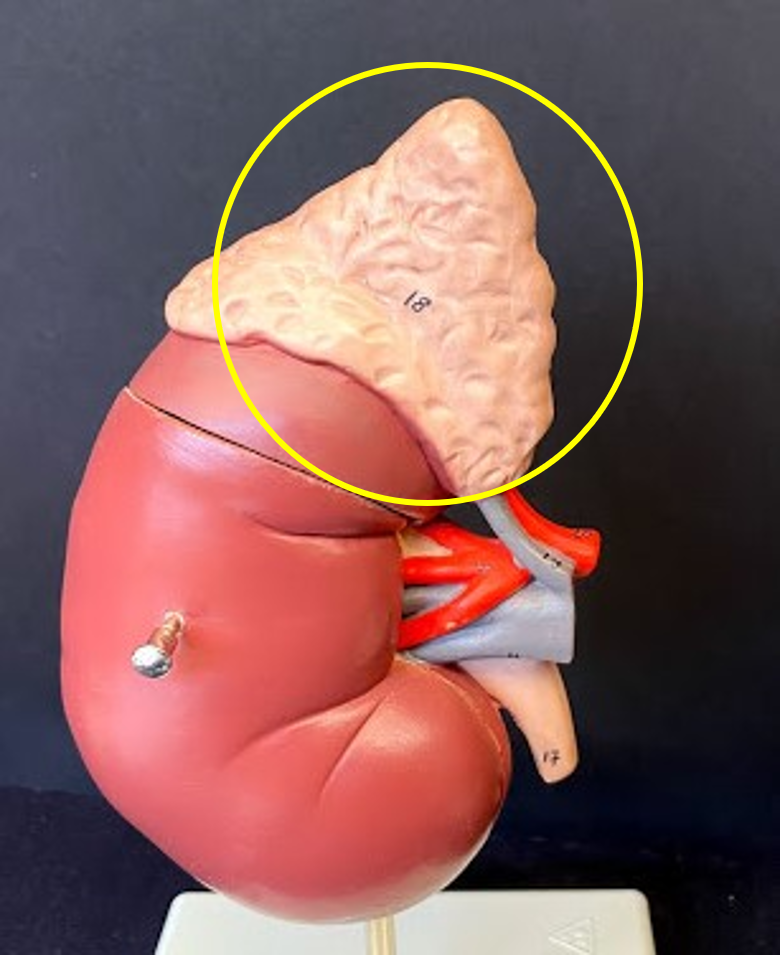
- What is the specific region DEEP inside of this gland?
- Name one hormone it produces.
- This is the adrenal gland sitting on top of a kidney.
- the superficial part is the adrenal cortex that produces cortisol and aldosterone.
- the DEEP structure inside the adrenal gland is the Adrenal Medulla that produces epinephrine and norepinephrine.
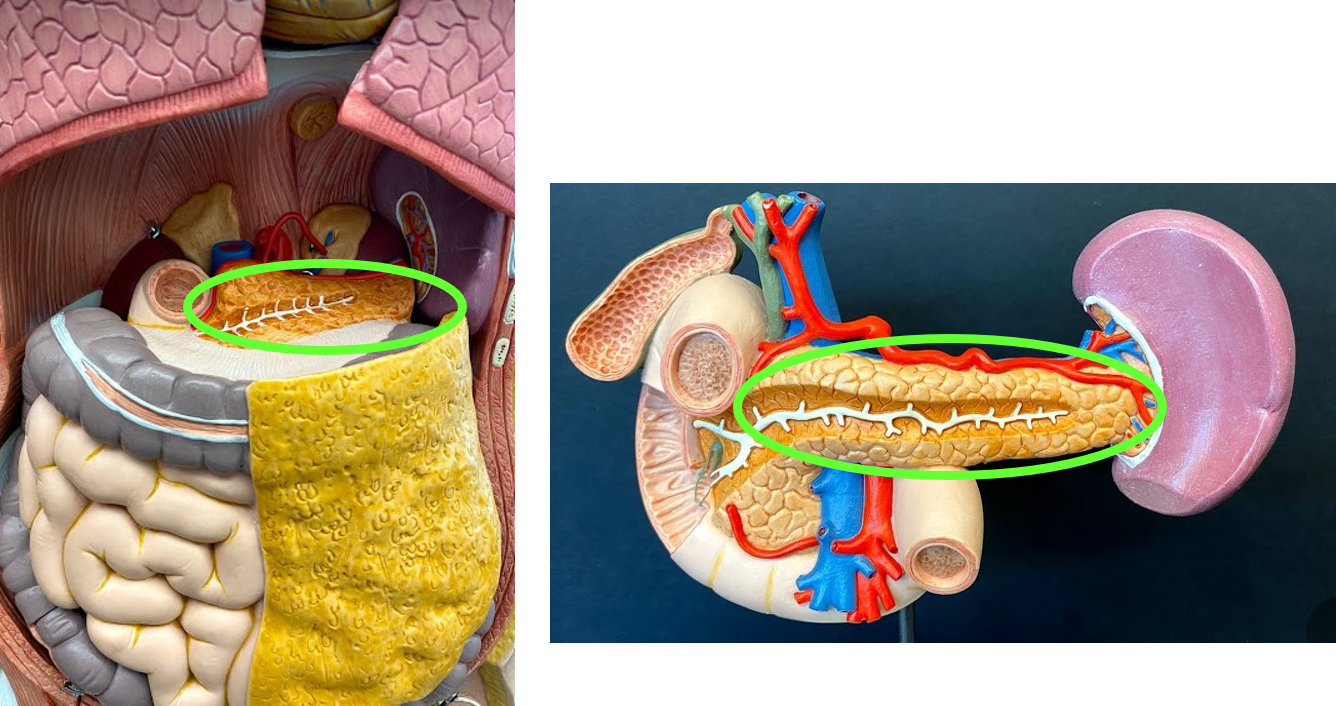
Name the gland & one hormone it produces.
- Pancreas
- produces insulin and glucagon.
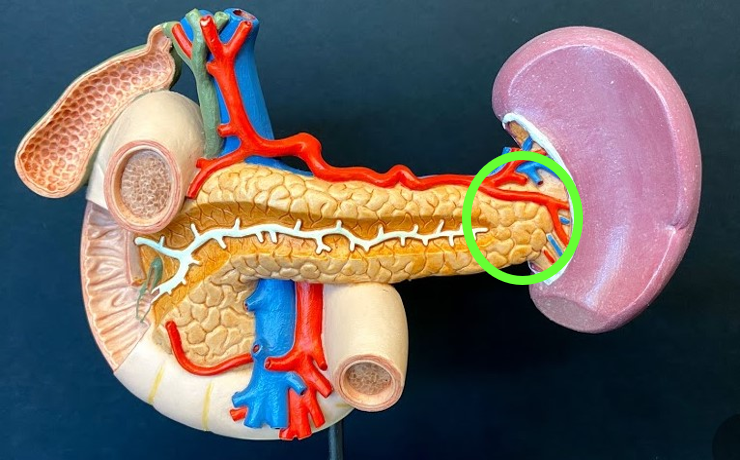
- Name the specific part of this gland.
- Name one hormone it produces.
- Tail of the Pancreas
- pancreas produces insulin and glucagon.
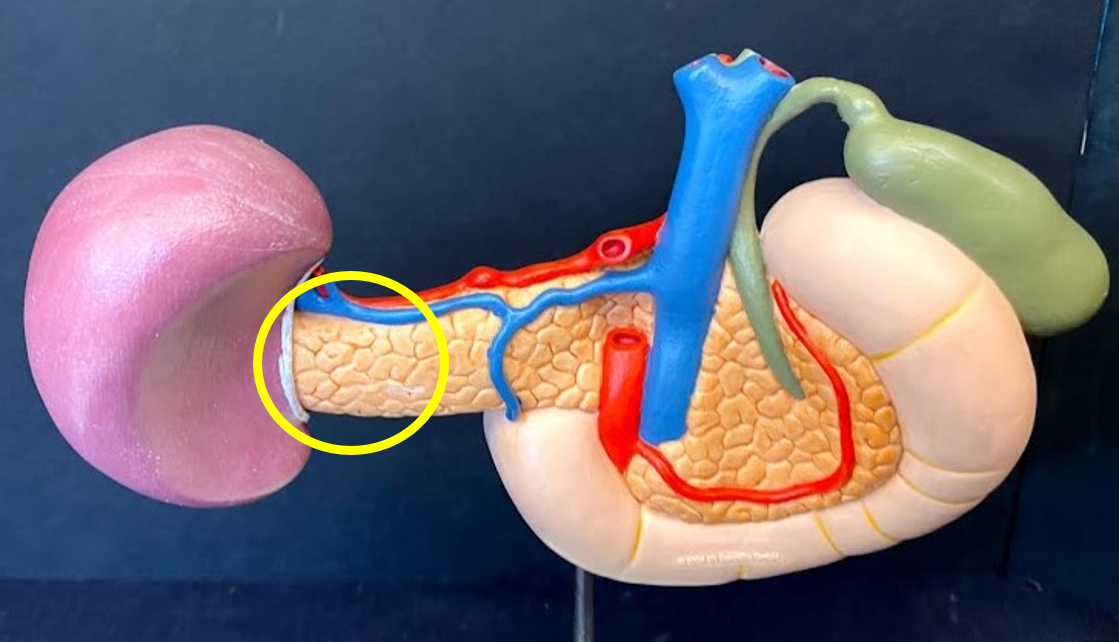
- Name the specific part of this gland.
- Name one hormone it produces.
- Tail of the Pancreas
- pancreas produces insulin and glucagon.
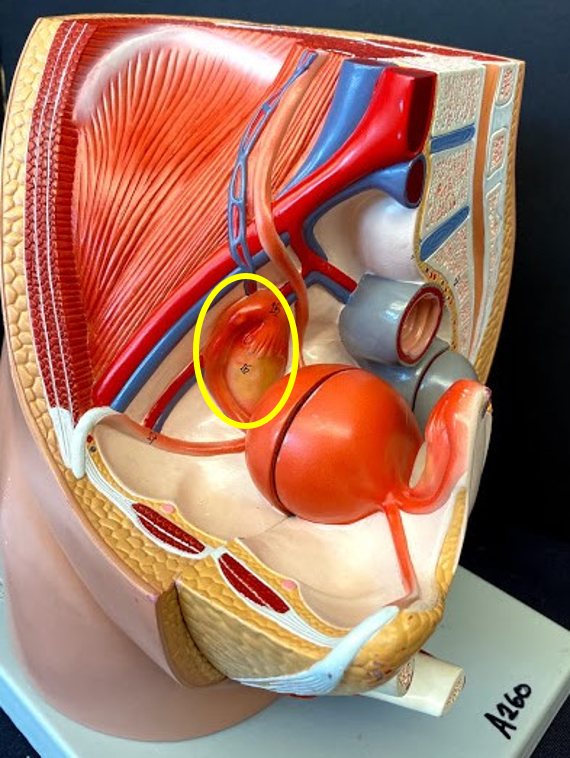
Name the gland & one hormone it produces.
- Ovary
- produces estrogen and progesterone.
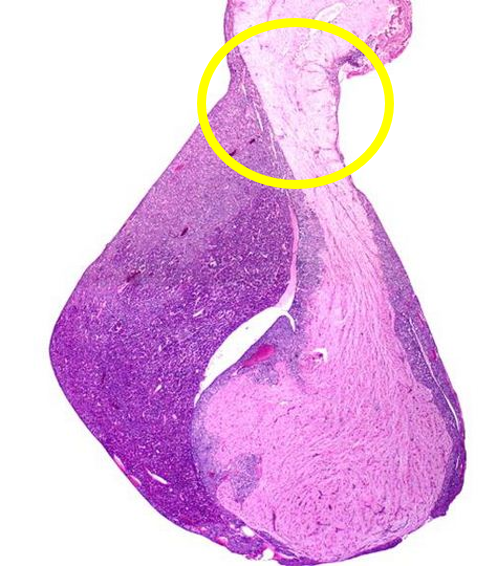
Name the structure.
- Structure circled is the Infundibulum/ Pituitary Stalk connecting the hypothalamus (top portion) to the pituitary gland (bottom portion).
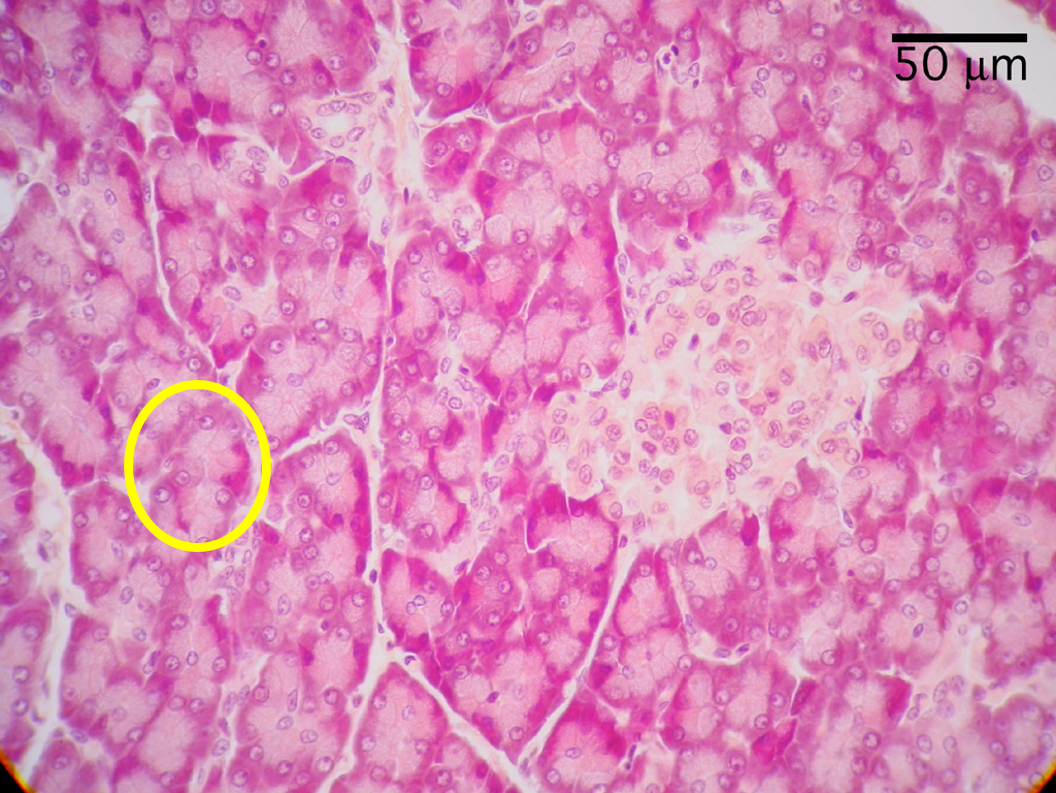
Name type of cells in this area.
- Acinar Cells (surround the pancreatic islets)
- image is part of the pancreas; big clump there are pancreatic islets producing insulin and glucagon.
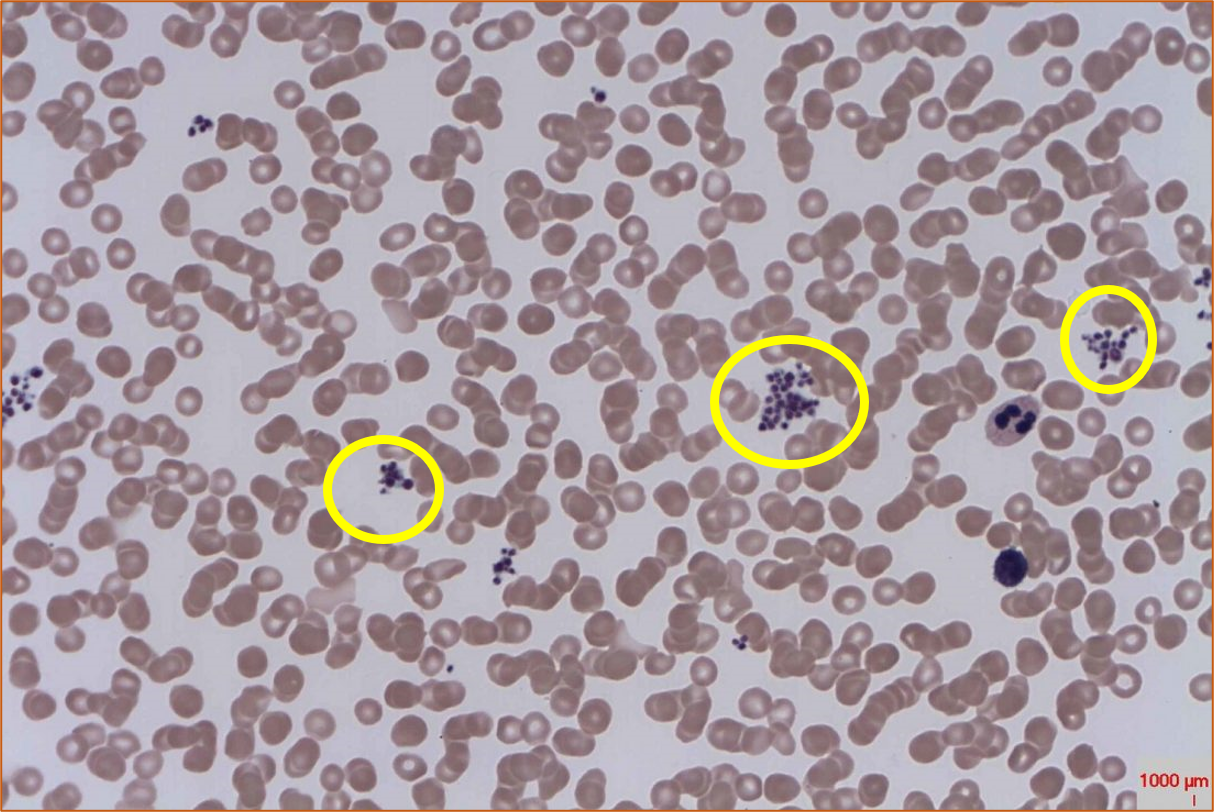
Name type of cells in this area.
- Platelets/ Thrombocytes
- involved in blood clotting
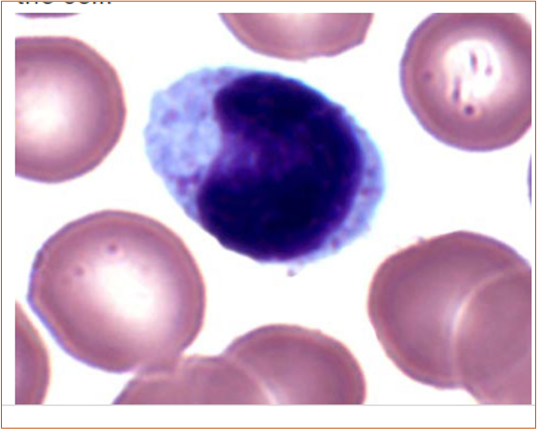
Type of cell and basic function.
- Monocyte
(becomes a macrophage)
- involved in inflammation and phagocytosis.
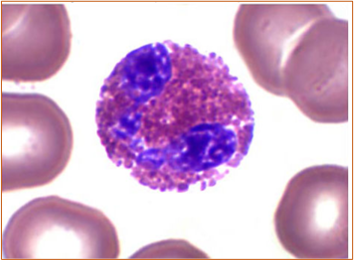
Type of cell and basic function.
- Eosinophil
(pinkish granules, bilobed nucleus)
- function is to fight parasitic infection, involved in inflammation and allergic reactions.
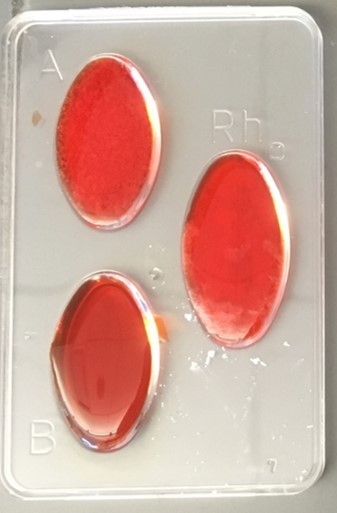
- Name the blood type.
- What type of antibodies would this person make?
- Showing agglutination for protein A and Rh = blood type is A+.
- Will make antibodies to protein B (it is a protein they DON'T have).
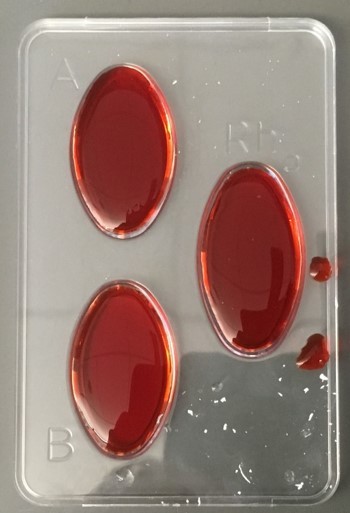
- Name the blood type.
- What type of antibodies would this person make?
- Blood type= O- ..there is no reaction in any of the cells.
- Antibodies to A, B, and Rh
- Universal Donor
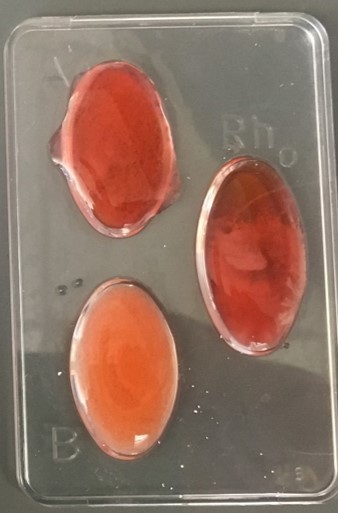
- Name the blood type.
- What type of antibodies would this person make?
- Blood type= AB+ ..reactions in all three cells.
- Will not make antbodies to A, B, or Rh.
- Universal Recipient
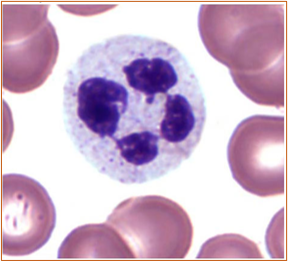
Type of cell and basic function.
- Neutrophil
- phagocytosis of bacteria
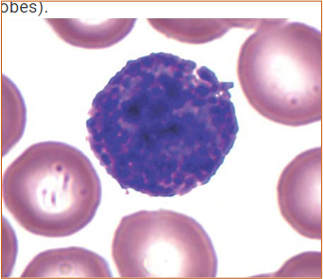
Type of cell and basic function.
- Basophil
- release Histamine and Heparin to stimulate inflammation
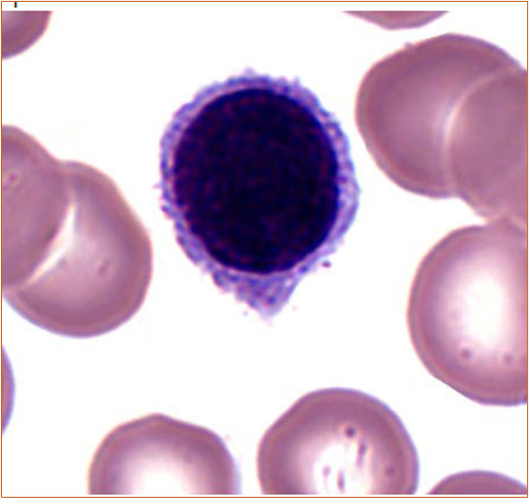
Type of cell and basic function.
- Lymphocyte
- makes antibodies for an immune response and kills tumor cells.
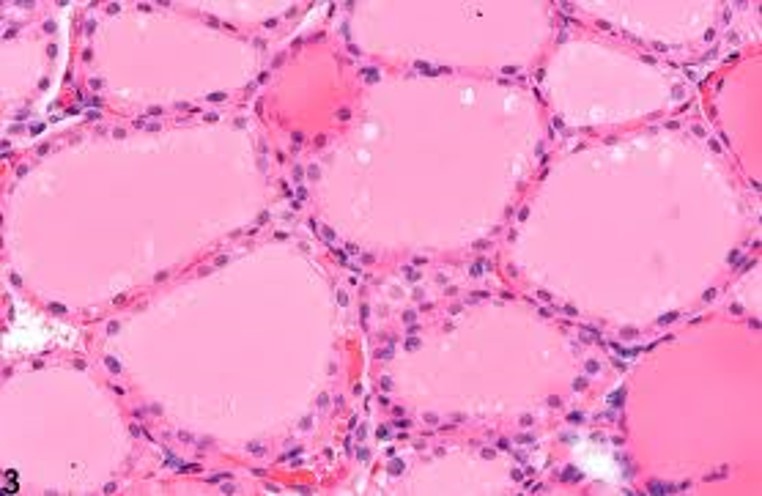
- Thyroid Gland
(large balls= follicles filled with colloid, the cells around the follicles= follicle cells/ C cells/ Parafollicular cells: makes Calcitonin to lower Calcium levels)
- produces the Thyroid Hormone
(T3/T4)
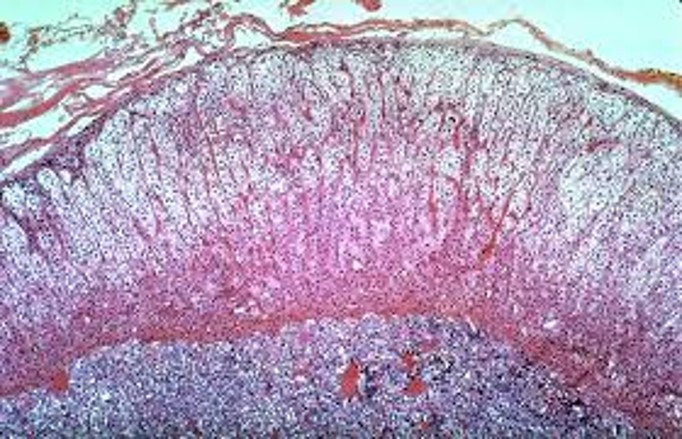
- Adrenal Gland
- deep portion; darkly stained purple= Adrenal Medulla
- top surface= Capsule
- from the adrenal medulla to the surface is the Adrenal cortex.
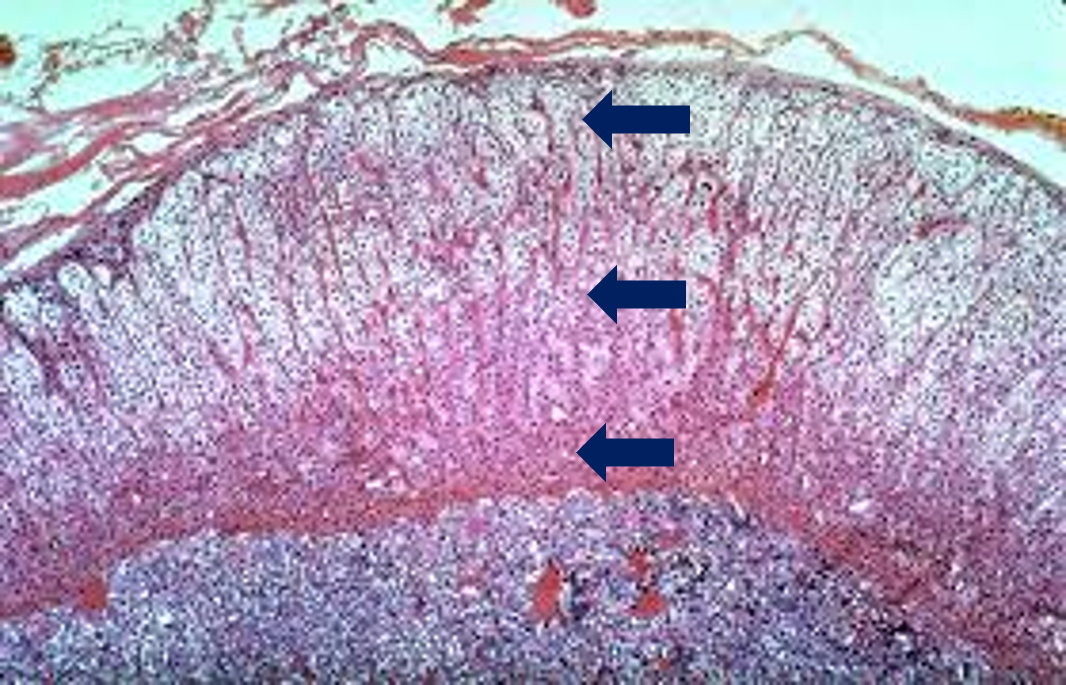
- part of the adrenal cortex, from top to bottom:
- Zona Glomerulosa produces Aldosterone
- Zona Fasciculata produces Cortisol
- Zona Reticularis produces Androgens
- part of the Adrenal Medulla, are Chromaffin Cells that produce Epinephrine and Norepinephrine.
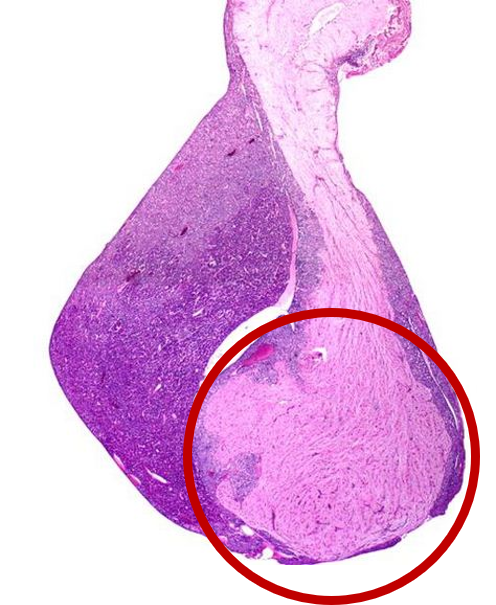
- Posterior Pituitary - neural
- produces Oxytocin & ADH
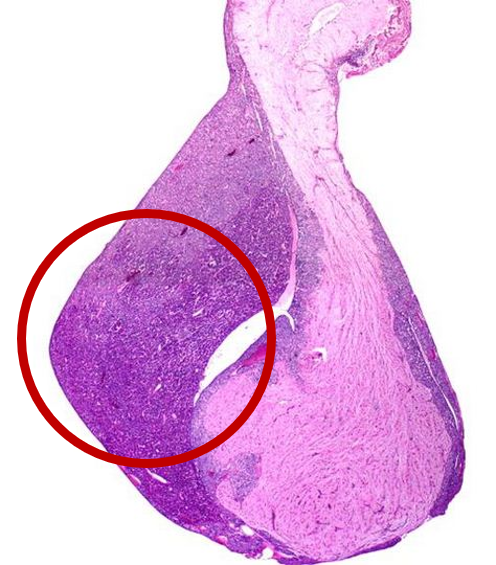
- Anterior Pituitary - endocrine
- produces tropic hormones
- ACTH, TSH